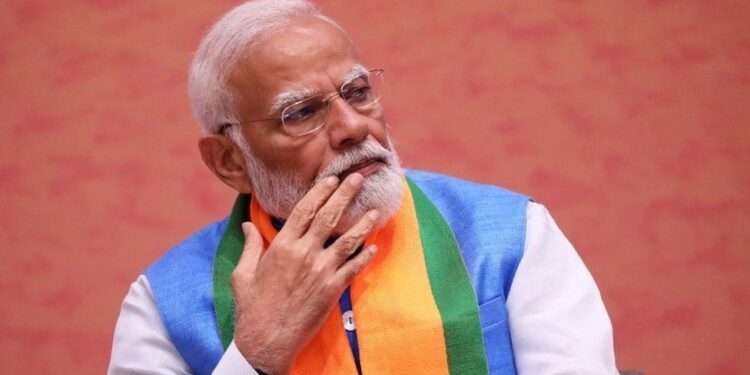Narendra Modi, the fourteenth Prime Minister of India, has garnered a large following both nationally and globally. He began in poverty and rose to political power, known for his ambition, scandals, and aspiration to elevate India to a global power. This blog explores Narendra Modi’s life, contributions, and impact on India’s socio-political framework.
Narendra Modi’s Rise to Power in India
Born in Vadnagar, Gujarat, on September 17, 1950, Narendra Modi grew up in poverty but harbored ambitions for a political career. He joined RSS in the 1980s and quickly rose through the ranks due to his adeptness at leadership and management.
Modi’s tenure as Governor of Gujarat from 2001 to 2014 was marked by both acclaim and controversy. Gujarat saw rapid economic growth and infrastructure development under his leadership, but the 2002 Gujarat riots criticized him for incompetence and failure to act.

Prime Ministership and Key Initiatives
Narendra Modi assumed historical leadership of India with the BJP in 2014, pledging “Sabka Saath, Sabka Vikas” (Development for All). His initiatives aimed to promote economic growth, modernize infrastructure, and improve livelihoods across India.
Narendra Modi’s Development Programs
Modi introduced significant economic reforms such as the Goods and Services Tax (GST) to simplify the tax system and “Make in India” to boost production and job opportunities. He focused on digital transformation through initiatives like Digital India to reduce information gaps and implement policies effectively.
Social Initiatives and Welfare Schemes in India
Under Modi’s rule, numerous social programs were launched to strengthen vulnerable groups and improve social indicators. Programs like Pradhan Mantri Jan Dhan Yojana (PMJDY) aimed at financial inclusion, while Swachh Bharat Abhiyan focused on cleanliness and sanitation.
Foreign Policy and Global Leadership In India
Modi shaped India’s foreign policy by building relationships with key countries, enhancing India’s international standing. He fostered ties across Asia, Africa, and Europe and strengthened Indo-US relations.

Criticism and Challenges
Despite his achievements, Modi faced criticism for his leadership style, religious polarization, and limitations on freedom of expression. Economic challenges such as joblessness and agricultural issues were also points of contention. Demonetization in 2016 aimed to tackle corruption but divided opinions on its economic impact.
Conclusion: Narendra Modi’s Legacy and Future Prospects
Despite challenges, Modi remains a charismatic leader whose policies have left an indelible mark on India’s path to becoming a global economic powerhouse. As the 21st century progresses, Modi’s bold ideas continue to shape India’s growth trajectory.




